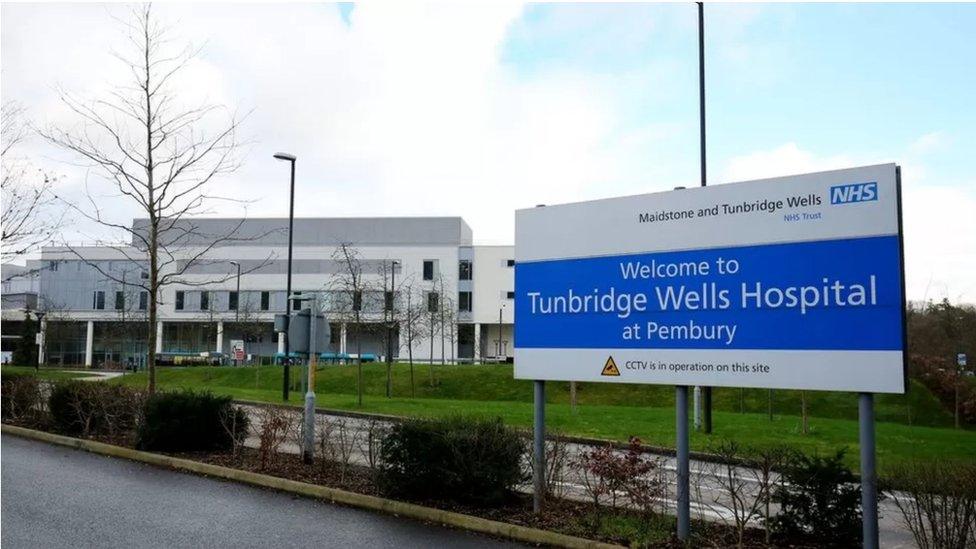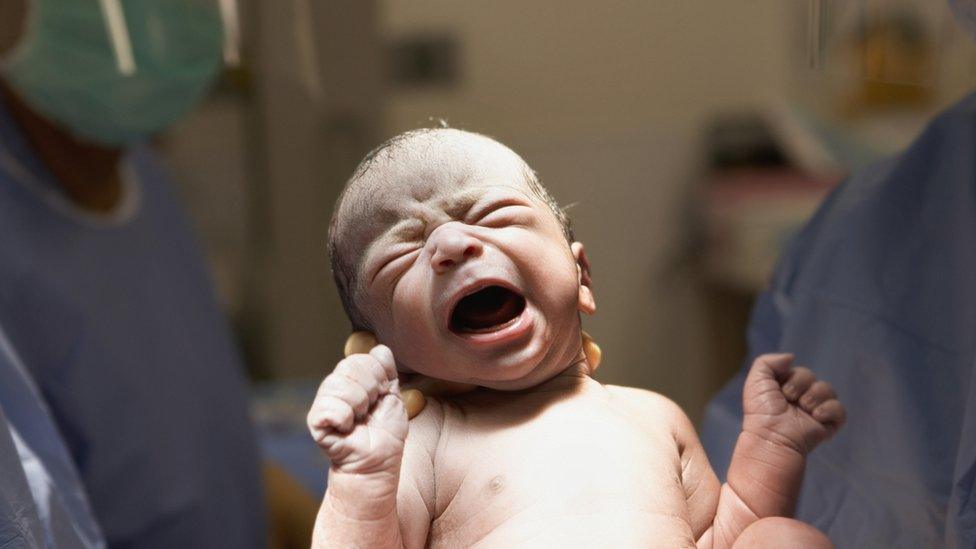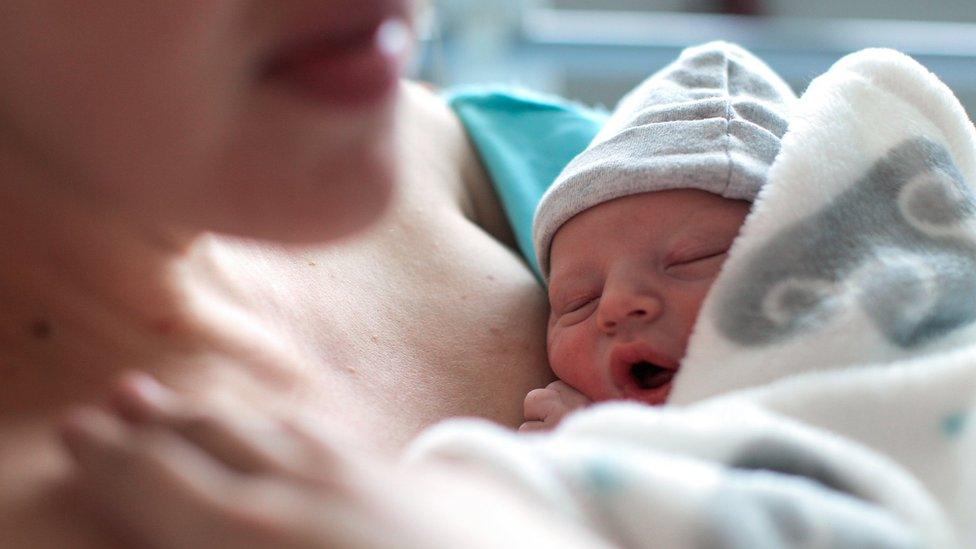Maidstone and Tunbridge Wells maternity services rated inadequate
- Published

Tunbridge Wells Hospital's maternity services received the CQC's lowest rating
A maternity service run by Maidstone and Tunbridge Wells NHS Trust (MTW) has been rated inadequate by the Care Quality Commission (CQC).
The maternity services at the Tunbridge Wells Hospital received the lowest rating in a report published on Friday.
The trust's Maidstone Birthing Centre and Crowborough Birthing Centre were rated as "requires improvement".
MTW chief executive Miles Scott said the suggested improvements were the organisation's "highest priority".
The CQC served a warning notice to the trust to focus its attention on making "rapid improvements" at the Tunbridge Wells Hospital.
The trust said it had taken steps to address the CQC's recommendations, including by undertaking a multidisciplinary workforce review and organising additional training.
A trust spokesperson said: "While today's report reflects themes and challenges facing maternity services across the country, the experience and safety of people using the trust's maternity services remains our primary focus.
"Last week the CQC published it's 2023 Maternity Survey, which identified MTW as one of just eight trusts nationally that exceeded service user expectations."
Friday's report said daily safety checks of emergency and specialist equipment were not always completed at the hospital and there were concerns about the service's infection control measures as inspectors found no cleaning schedules for areas including the birthing pool.
Generally, the trust managed formal complaints well and staff focused on the needs of people using the service and cared for them with "dignity and respect", inspectors noted.
At Maidstone Birthing Centre, inspectors found poor record keeping, poor governance systems and a lack of auditing.
The report said mandatory training was not always completed but staff were focused on the needs of people using their service, which had an "open culture".
At Crowborough Birthing Centre, inspectors found midwifery staffing levels were unsafe and it put mothers and babies at risk of harm.
Staff also did not always complete mandatory training and records, including risk assessments, inspectors found.
Despite this, staff understood how to protect people from abuse and were focused on the needs of their patients.

Analysis
By Mark Norman, health correspondent, BBC South East
Another highly critical report into maternity services will disappoint and worry many.
Many of the issues have been highlighted elsewhere including in the Kirkup report into problems in East Kent and the Ockenden report.
Poor record keeping, poor staffing levels, a lack of risk assessments, problems with foetal heart monitoring, a lack of staff training. I could go on.
Maternity departments across the country have read and been told to implement the findings of these reports, failing to do so in full is potentially impacting on the safety and wellbeing of mothers and babies.

CQC's deputy director of secondary and specialist care Carolyn Jenkinson said trust staff were doing their best to provide safe care "despite ineffective systems and poor leadership".
If further improvements were not implemented, Ms Jenkinson said the CQC would not hesitate to take further action.

Follow BBC South East on Facebook, external, on X, external, and on Instagram, external. Send your story ideas to southeasttoday@bbc.co.uk, external.
Related topics
- Published18 January 2023

- Published21 September 2022

- Published16 November 2023
